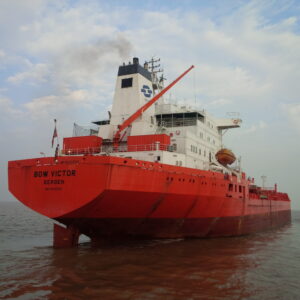- Leading ship recycling company and has been established in 1983
From Ocean to Opportunity: The Economics of Ship Breaking
The shipbreaking industry is one such sector in developing countries that has always been the center of attention for its environmental impacts and economic opportunities. Recycling ships is by far the most environmentally friendly and economically sound way of disposing of or dismantling end-of-life vessels. “From Ocean to Opportunity: The Economics of Ship Breaking,” prepared by R.L. Kalthia, gives you a glimpse into the significance of ship recycling in global trade, several economic drivers of shipbreaking, and future trends and innovations in the shipbreaking industry.
Economic Drivers in the Shipbreaking Industry
Steel scraps comprise the majority of ship recycling revenues in terms of tonnage. However, the most lucrative revenue is earned from non-ferrous items, including engines, furniture, etc. The ship recycling mode of ship disposal leads to enormous economic benefits and provides employment opportunities and raw materials to other industries.
The economic aspects of shipbreaking can be classified into raw material extraction, employment opportunities, and the impact on local economies. The raw materials and metal scraps recovered from ship recycling compensate for a huge demand for re-rolling steel in construction and other industries. Several small and medium enterprises, including light and heavy engineering industries, rely upon the re-rolling steel of the ship recycling industries. The key economic drivers for the shipbreaking industry are summarized below:
- Offer employment opportunities in regions with high unemployment rates.
- Play a key role in the skill development of workers by conducting training programs.
- Promote infrastructure development in the surrounding areas of the shipyards.
- Stimulate the growth of supporting industries such as logistics, transportation, and support services.
- Reduce reliance on the steel industry.
Impact of Regulatory Norms on the Economics of Shipbreaking
The major potential of shipbreaking yards in developing countries can be attributed to the large number of migrant workers. The shipbreaking yards generate significant revenue for the state and contribute enormously to the steel requirements of India, Pakistan, and Bangladesh. The regulatory norms launched at the international and national levels influence the operational practices, compliance costs, and market dynamics of the shipbreaking economy. The different shipbreaking regulations playing a key role in shaping the economics of shipbreaking are briefed below:
|
Regulatory Norm |
Impact on the Shipbreaking Economy |
| Hong Kong International Convention | Affect operational costs due to the need for adherence to safety and environmental standards. |
| Basel Convention | Impact the availability of ships for breaking based on compliance requirements. |
| National Regulations | Governs ease of doing business, licensing requirements, and compliance costs for shipbreaking operations. |
| Market Access and Reputation | Compliance enhances market access and reputation, attracting more business and partnerships. |
| Cost of Compliance | Increases operational expenses, affecting pricing structures and profit margins for shipbreaking yards. |
| Incentives and Subsidies by Government | Government support encourages compliance costs and promotes the adoption of sustainable practices in shipbreaking. |
Shifting Dynamics in the Economics of Shipbreaking in India
The Recycling Act 2019 has been a breakthrough in the economics of the Indian shipbreaking industry. The Act propagates the adoption of the Hong Kong Convention (HKC) in shipyard facilities, facilitating an eco-friendly ship recycling process and ensuring the welfare of yard workers. These changes have put India at the center of the global shipbreaking scenario. These government initiatives are expected to give India a huge share of the world’s shipbreaking since many nations would prefer to send their ships to India.
Wrapping Up!
The shipbreaking industry has always been lauded for its economic benefits and the economic boost it offers to developing nations. However, it is high time to shift attention to balancing the economic benefits with environmental and ethical considerations. With government initiatives and the introduction of the Recycling Act 2019, the future of shipbreaking in India seems promising.
